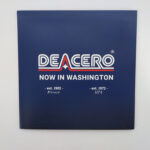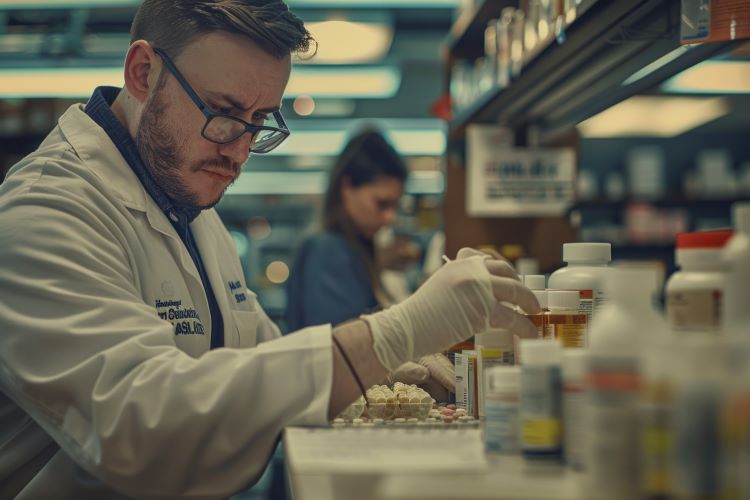Not Just About Pretty Packaging
Let’s be honest—cosmetics and personal care products live in a loud, flashy world. Fancy bottles, sleek branding, influencer endorsements. But underneath all that shimmer, something far more important is at play: trust. Because when someone’s putting your product on their skin, hair, or face every day, it better be more than just pretty.
And this is where GMP—Good Manufacturing Practices—steps in. Not as a formality or some regulatory nuisance, but as a behind-the-scenes promise. A commitment to safety, consistency, and care.
Think of GMP certification as the calm, quiet hero in the background. Not glamorous, but essential. Like the foundation of a house—no one sees it, but you sure know if it’s not there.
So… What Is GMP, Really?
Let me explain it like this: GMP certification is a set of rules that make sure your products are made safely and consistently. Not just “we cleaned the equipment once last year” safe—but meticulously clean, controlled, and documented.
It’s not one single rulebook either. For the cosmetics industry, it usually means following ISO 22716, a globally recognized guideline. This isn’t about micromanaging—it’s about creating a structured environment where things don’t go wrong in the first place.
Sounds dry? Maybe. But imagine your moisturizer ends up contaminated because a technician didn’t wash their hands properly. Or your shampoo labels get swapped with your foot cream. GMP certification is what keeps those nightmares from happening.
And it’s not just about hygiene. It covers:
Staff training (people matter!)
Equipment maintenance
Packaging controls
Storage protocols
Batch traceability
Even the floors matter. Because bacteria, unlike customers, don’t care about your margins.
What’s the Payoff? More Than Just Compliance
Here’s the thing—GMP isn’t just about avoiding fines or satisfying regulators. That’s the baseline. The real magic? It gives your business an edge. A competitive one.
You earn trust—not just from consumers, but from retailers, distributors, and potential partners. GMP certification signals that you’re serious about quality. It’s like showing up to a business meeting not just in clean clothes—but with receipts for your dry cleaning.
And here’s a reality check: if your product ever gets recalled (say, a contaminant slips in or the wrong preservative was used), gmp zertifizierung documentation can save your brand. Traceability can mean the difference between a targeted fix or a complete product pull.
There’s also a hidden financial side. Poor manufacturing practices might save you pennies now but cost you thousands later. Lawsuits, bad reviews, even TikToks dragging your brand through the mud? Yeah, not worth it.
Let’s Take a Look Behind the Curtains
GMP compliance means creating a workspace that’s consistent and clean—always. Not just when the auditors swing by.
What’s actually involved? Here’s the short version:
Documented SOPs (Standard Operating Procedures): These are your “how-to” guides for everything—from mixing to labeling to cleaning.
Personnel hygiene: Yes, even beard nets in some cases.
Controlled environments: Dust, temperature, humidity—these all play a role.
Raw material checks: That fragrant essential oil? Better make sure it’s what it says it is.
Packaging integrity: Labels that stick, bottles that seal properly.
There’s even a term for it: cleanroom behavior. Which means, no snacks, no personal items, and definitely no cell phones on the batching floor. (Tempting, I know. But save the selfies for later.)
ISO 22716 – More Than Just a Standard
ISO 22716 is the cosmetics industry’s go-to GMP certification guideline. It’s structured, sure, but it’s also surprisingly adaptable. Designed to help—not strangle—your workflow.
Audits under this standard are systematic but manageable. It focuses on:
Product lifecycle management
Risk assessment
Documentation integrity
Employee competency
And it’s not about being perfect. It’s about being traceable and repeatable. If you can prove that your lotion was made the same way every time, with ingredients from trusted sources, you’re in good shape.
Think of it like baking your grandma’s cookie recipe: consistent batches, no surprise ingredients, and definitely no salt instead of sugar.
So What Does Getting Certified Actually Involve?
Honestly? It’s work. But it’s not Mount Everest. More like a steady uphill hike—with checkpoints.
Here’s a rough breakdown of what you’ll need:
A full set of SOPs
Staff training records
Equipment maintenance logs
Raw material tracking
A clean, controlled production space
The timeline? If you’re starting from scratch, prep might take 4–6 months. The audit and certification process adds another 2–3. Longer if you hit snags (which, let’s be real, most folks do).
Do You Really Need It?
Look, if you’re mixing scrubs in your kitchen and selling 50 jars a month at the farmer’s market, you’re probably not there yet.
But if you’re scaling up—talking to retailers, shipping across borders, or just tired of wondering if your process is “good enough”—then yeah. It’s time.
And there’s another layer: social media. Today’s beauty consumers are ingredient-savvy and label-curious. They’ll Google your preservatives and call out inconsistencies. GMP certification helps you sleep at night knowing your stuff won’t go viral for all the wrong reasons.
What Comes After GMP?
GMP is the start—not the summit.
Many manufacturers go on to get:
ISO 9001 for quality management
ISO 14001 for environmental stewardship
Retailer-specific clean beauty certifications
Each one builds on the credibility of the last. It’s like building a resume: GMP is your solid first job that proves you’re serious.
In the End… It’s About More Than Paperwork
Here’s the part people forget: Your customers won’t see your facility—but they’ll feel its quality.
They’ll feel it in the way your product smells consistent. The way the label doesn’t peel off in the shower. The way their skin doesn’t react.
GMP certification is a quiet kind of marketing. Not loud or showy—but deeply persuasive. It’s about building trust that doesn’t need to shout.
And that? That’s how you build a beauty brand that lasts.
- GMP Certification for Cosmetics: What It Really Means and Why It Matters
- GMP certification for cosmetics ensures that products are consistently produced and controlled according to quality standards. It’s not just a regulatory requirement—it’s a sign of safety, reliability, and professionalism in the beauty industry.
- gmp zertifizierung
Related posts:
 Discover the Best Fence Installation Services in Omaha with Huskins Services LLC
Discover the Best Fence Installation Services in Omaha with Huskins Services LLC
 Summer Solstice Party Ideas & Activities for a Magical Celebration | BizzCrave
Summer Solstice Party Ideas & Activities for a Magical Celebration | BizzCrave
 Luxury or Budget? Finding the Right Heathrow Transfer for You
Luxury or Budget? Finding the Right Heathrow Transfer for You
 What Is Cold Rolled Stainless Steel Coil and Why Does It Matter?
What Is Cold Rolled Stainless Steel Coil and Why Does It Matter?
 Make Impact with Commercial Signs Raleigh NC: A Strategic Guide to Business Success
Make Impact with Commercial Signs Raleigh NC: A Strategic Guide to Business Success
 PEX vs Copper in New Homes: What’s Right for You? | Creative Repipe
PEX vs Copper in New Homes: What’s Right for You? | Creative Repipe
 Top Benefits of Professional Roller Shutter Repair in London
Top Benefits of Professional Roller Shutter Repair in London
 What to Expect When Buying a Solar Battery Locally – Pricing, Quality, and Local Support Insights
What to Expect When Buying a Solar Battery Locally – Pricing, Quality, and Local Support Insights






